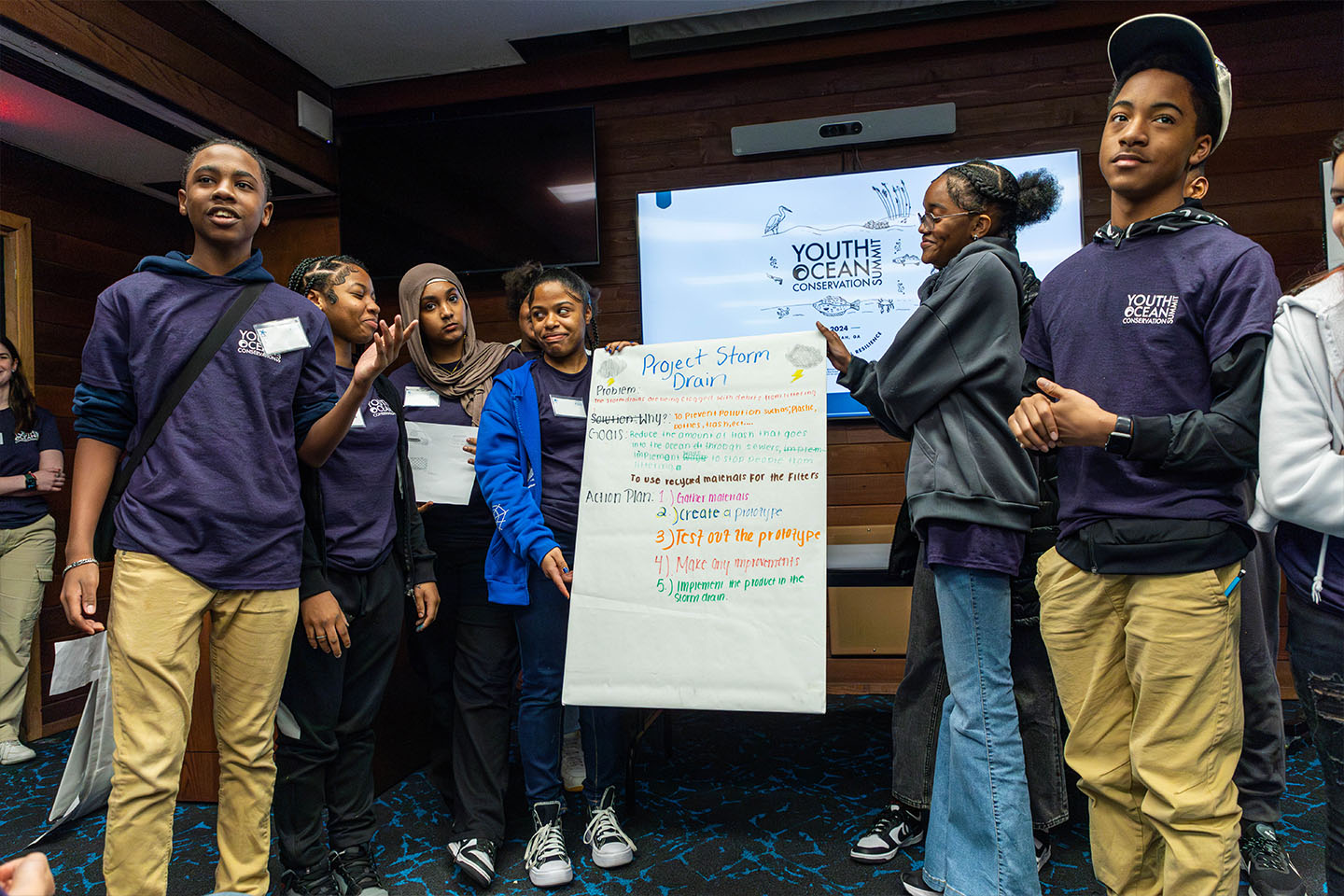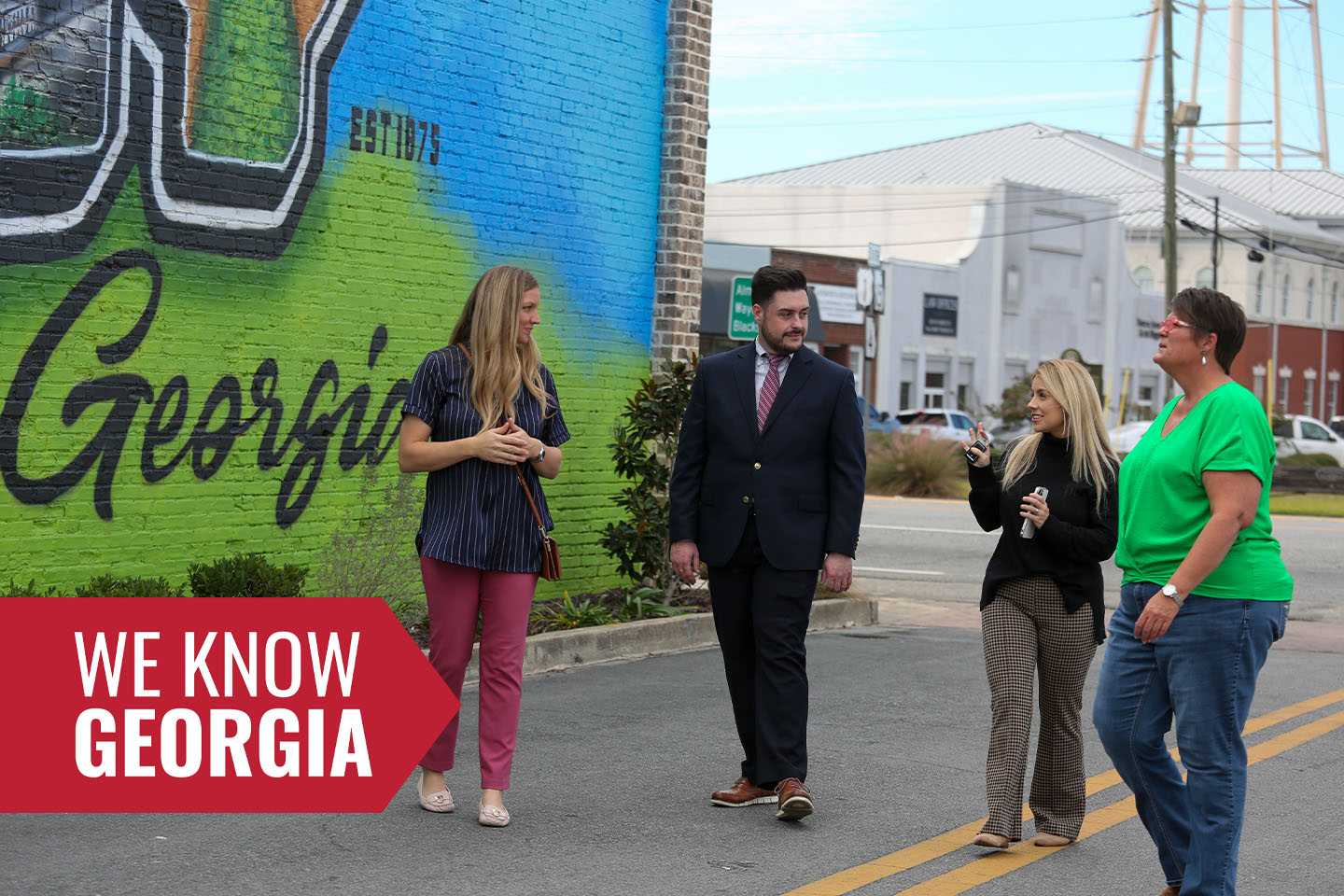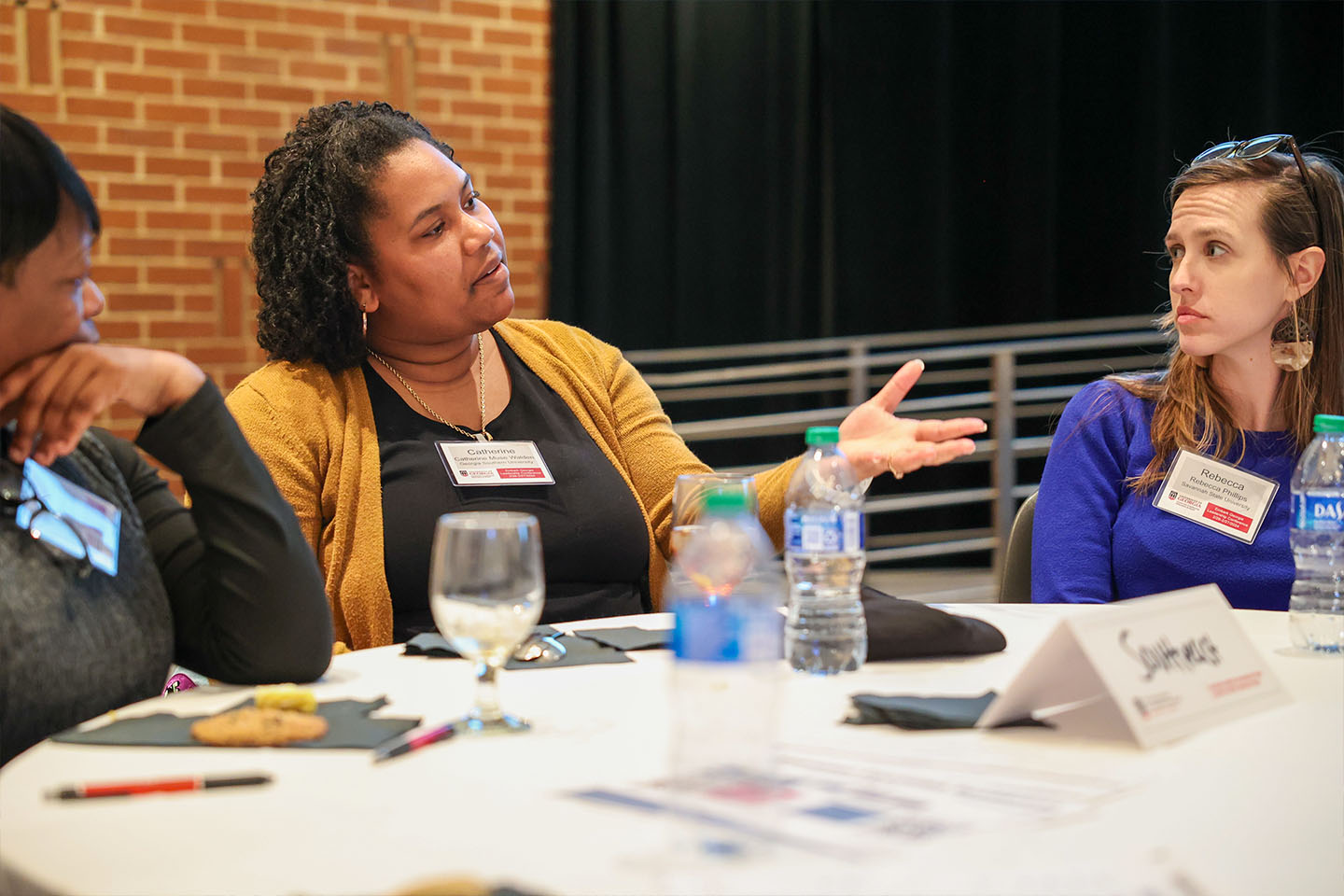If conservationists at the State Botanical Garden of Georgia have their way, the newly-dedicated Mimsie Lanier Center for Native Plant Studies will one day be obsolete.
“We will teach growers how to grow native plants for restoration, for gardening with native plants and we’ll have such a supply in the green industry that we won’t do that production anymore,” says Jennifer Ceska, the garden’s conservation coordinator. “We’re working to get these plants back on the land.”
Central to that vision is an effort called Connect to Protect. The program aims to install native plants in small, public spaces across the state to support pollinators and other wildlife. It’s a way to educate people about the importance of native plants by creating habitats in places like schools, businesses and public parks.
And the program is already getting traction.
Last fall, Macon-Bibb County partnered with the garden to install nearly 2,000 native plants in several public parks. Stephen Reichert, the chairman of the garden’s advisory board and a Macon native, hopes that project will serve as a model for partnerships with other communities across Georgia.
“We’ve gotten good publicity here in Macon and I have continued to talk to the director of park services about expanding and building on the start we have made,” Reichert said.
At a recent advisory board meeting, State Botanical Garden of Georgia Director Wilf Nicholls said other Georgia cities considering the Connect to Protect program include Madison, Watkinsville and Gainesville.
Mimsie Lanier, the long-time advisory board member for whom the Center for Native Plant Species is named, said she is coordinating with other advisory board members in Gainesville about putting together plants in that city.
Partnering with other communities is a major expansion from the program’s initial goal of building pollinator gardens in local schools. Connect to Protect began as a way for garden educators to venture into schools near Athens and run a variety of activities centered around native plants and pollinators. That evolved into a full curriculum, called the Connect to Protect module, that teachers can use on their own.
Graduate student Lauren Muller, who is coordinating the program this spring, is dreaming bigger than schools. She spent much of her undergraduate career at UGA volunteering with the Mimsie Lanier Center for Native Plant Studies.
A former barista, Muller already has gotten buy-in from Hendershot’s Coffee and Jittery Joe’s. A class with the Odum School of Ecology recently installed a plot of native plants for Connect to Protect at Athens Regional Medical Center’s Healing Garden off Sylvan Road.
“We just want as many gardens as possible,” Muller said. “It doesn’t matter the size. We are trying to create continuity in pollinator habitat. Sticking to just schools isn’t going to help that goal. We need to diversify and get these gardens in people’s yards, in coffee shops, local businesses, that sort of thing. I think word is getting out and people are getting really excited about it.”
It’s the perfect synergy of education and conservation, Muller said. The biggest obstacle is that most people don’t know how to care for native plants. The garden can provide experts to examine potential sites and provide tips, she said.
“They think that it is mysterious and challenging, but it’s not,” Muller said. “It’s a matter of proper siting and knowing what kind of species you’re working with. Education is a huge aspect of it.”




